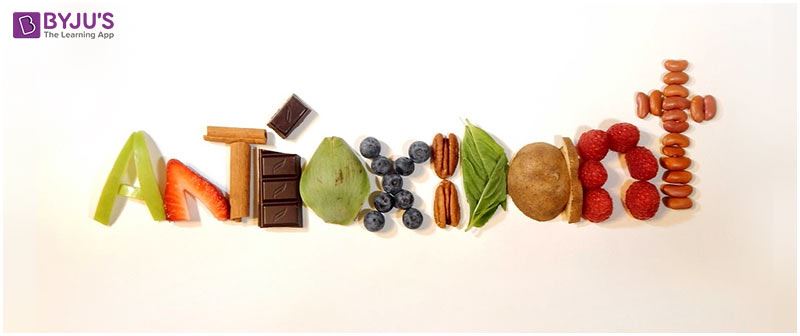What are Antioxidants?
Substances that inhibit the oxidation of other molecules are called antioxidants.
Free radicals are produced as a result of oxidation and these free radicals trigger a chain of chemical reactions that damage the cells. These chain reactions can be terminated by using some antioxidants such as ascorbic acid and thiols. A complex system of overlapping oxidants and antioxidants is maintained by plants and animals in order to balance the oxidation state.
Related Topics

Use of Antioxidants
Antioxidants are widely used in dietary supplements and these are very important for the prevention of many diseases that include cardiac disorders and cancer.
The other uses of antioxidants include application in industry for controlling reactions, food preservatives and cosmetics.
Health Effects of Antioxidants
Some level of antioxidants is good for our health. Due to limited information about the effect of antioxidants on the human body, it is difficult to predict the exact benefits as well as the side effects.
Studies have shown that antioxidants have potential effects on neuro-generative diseases such as Alzheimer’s disease. Foods containing Fructose which is also used from enhancing taste can use antioxidants properties also.
One of the antioxidant steroids is Tirilazad mesylate that inhibits the growth of lipid peroxidation which plays a vital role in neuronal death in strokes and head injuries.
Another oxidant NXY-059 showed some efficacy in animal models but failed in improving the stroke outcomes in clinics.
Benefits of Antioxidants
These are found in many fruits and prohibit the oxidation of other molecules in our body. Antioxidants are very important for human health. The free radicals in our body if left unchallenged and can cause illness as well as many chronic diseases, antioxidants prevent the chain of reactions that are triggered by the free radicals.
Different antioxidants provide many benefits to different parts of the body. For example, beta-carotene is very helpful for our eye, for prostate health lycopene is very beneficial and proanthocyanidins are useful for the urinary tract.
In today’s polluted world the antioxidant intake should increase the healthy functioning of our body as our body cannot produce the number of antioxidants needed. There should be a good amount of minerals, vitamins, and enzymes in our daily diet.
Antioxidant Foods
Owing to the importance of antioxidants in our diet, here we have listed down some antioxidant-rich foods. The food elements are listed down with their “Oxygen Radical Absorption Capacity (ORAC)” score.
- Goji berries: 4,310 ORAC score
- Wild blueberries: 9,621 ORAC score
- Dark chocolate: 20,816 ORAC score
- Pecans: 17,940 ORAC score
- Artichoke (boiled): 9,416 ORAC score
- Elderberries: 14,697 ORAC score
- Kidney beans: 8,606 ORAC score
- Cranberries: 9,090 ORAC score
- Blackberries: 5,905 ORAC score
- Cilantro: 5,141 ORAC score
- Clove:314,446 ORAC score
- Cinnamon: 267,537 ORAC score
- Oregano: 159,277 ORAC score
- Turmeric: 102,700 ORAC score
- Cocoa: 80,933 ORAC score
- Cumin: 76,800 ORAC score
- Parsley (dried): 74,349 ORAC score
- Basil: 67,553 ORAC score
- Ginger: 28,811 ORAC score
- Thyme: 27,426 ORAC score
For further information on topics of chemistry and more, register with BYJU’S.




Comments